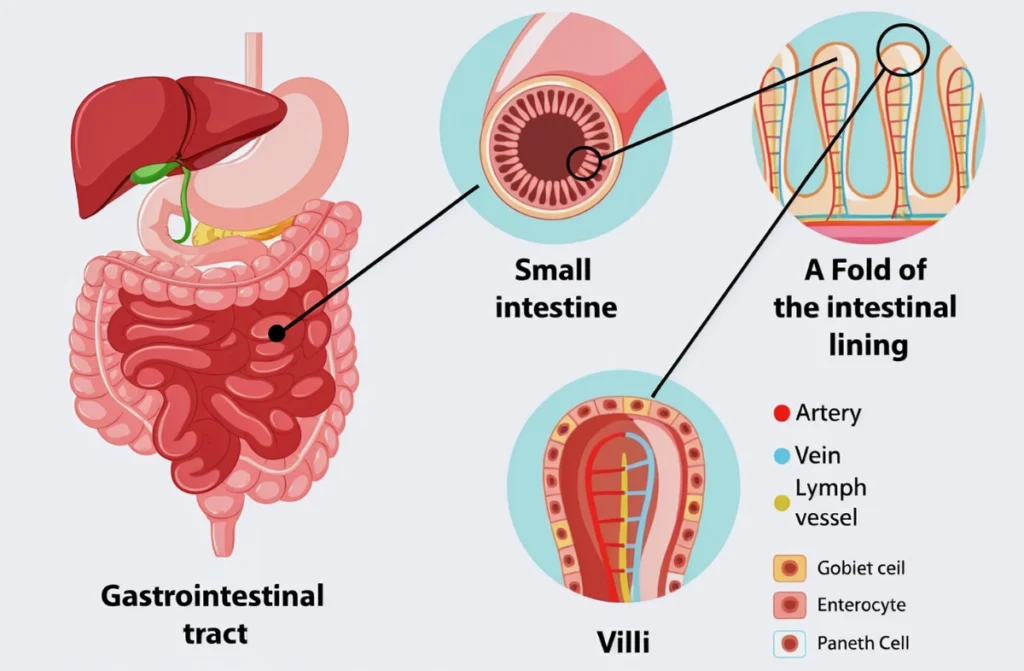Understanding how the digestive system works is essential for grasping how our bodies break down food and absorb nutrients. The digestive system is a complex network of organs that work together to convert the food we eat into energy and essential nutrients. In this blog post, we will explore how the digestive system works, what organs are involved, and the importance of a healthy digestive system.
What is the Digestive System?
The digestive system is a group of organs that work together to break down food into smaller components like nutrients, vitamins, and minerals that the body can absorb and use. The major parts of the digestive system include the mouth, esophagus, stomach, small intestine, large intestine, rectum, and anus. Additionally, the liver, pancreas, and gallbladder play crucial roles in aiding digestion.
The digestive process starts the moment you begin chewing food and continues until waste products are eliminated from your body. Each part of this system has a specific function that contributes to how the digestive system works efficiently.

Why is Digestion Important?
Digestion is vital because it transforms the food you eat into substances your body can use. Proteins, carbohydrates, fats, vitamins, and minerals must be broken down into smaller pieces so that your body can absorb them. Without proper digestion, your body wouldn’t get the energy or nutrients it needs to function properly.
- Energy: The body gets energy from breaking down carbohydrates and fats.
- Nutrient Absorption: Proteins are broken down into amino acids, and fats are turned into fatty acids, which are then absorbed into the bloodstream.
- Waste Elimination: Unusable parts of the food are eventually expelled as waste.
By understanding how a healthy digestive system works, we can appreciate its role in keeping us healthy and energized.
How the Digestive System Works
To truly understand how the digestive system works, it’s helpful to look at each step in the process. When you eat, food enters your mouth, where it’s broken down by chewing and mixed with saliva, which contains enzymes that begin breaking down carbohydrates. From there, it travels down the esophagus to the stomach, where stomach acids and enzymes break down food further.
Next, the food moves into the small intestine, where most of the digestion and absorption of nutrients occur. The liver, pancreas surgery, and gallbladder release digestive enzymes that help break down fats, proteins, and carbohydrates. Finally, the remaining food passes into the large intestine, where water is absorbed, and waste is prepared to be eliminated from the body.
This entire process is how the digestive system works to ensure that your body gets the nutrients it needs while eliminating waste.
Food That Moves Through My GI Tract
Once you swallow food, it enters the gastrointestinal (GI) tract, which is essentially a long tube that runs from your mouth to your anus. The journey food takes through the GI tract includes several key steps:
- Mouth: Food is chewed and mixed with saliva, which begins breaking down carbohydrates.
- Esophagus: Food is pushed down to the stomach through a muscular action called peristalsis.
- Stomach: Stomach acids and enzymes break down food into a semi-liquid form called chyme.
- Small Intestine: Most nutrients are absorbed here with the help of enzymes from the liver damage and pancreas.
- Large Intestine: Water is absorbed, and waste is formed.
- Rectum and Anus: Waste is stored and then eliminated.
This process is essential to how the digestive system works effectively in breaking down food into usable parts and discarding waste.
What Happens to the Digested Food?
Once digestion occurs, the small intestine absorbs most of the nutrients into the bloodstream. These nutrients then travel to various parts of the body, providing energy, repairing tissues, and supporting immune function. The nutrients your body absorbs include:
- Carbohydrates: Broken down into glucose for energy.
- Proteins: Broken down into amino acids to build and repair tissues.
- Fats: Converted into fatty acids for energy and cell structure.
The remaining waste, which cannot be used by the body, is passed into the large intestine and eventually excreted. How does digestion work? It’s a well-organized system of breaking down food, absorbing nutrients, and expelling waste.
How Does My Body Control the Digestive Process?
Your body has an intricate way of controlling how the digestive system works. The digestive process is regulated by both hormones and the nervous system:
- Hormones: The stomach and small intestine release hormones that signal when it’s time to start digesting food.
- Nerves: Nerve cells in the lining of the GI tract help regulate muscle contractions that move food through the system.
Your brain also plays a role. When you smell or think about food, your brain signals the salivary glands to produce saliva, getting digestion started before you even take a bite.
What Organs Make Up the Digestive System?
Understanding how the digestive system works involves knowing which organs are responsible for breaking down and absorbing food. The key organs include:
- Mouth: Starts the process of breaking down food.
- Esophagus: Moves food from the mouth to the stomach.
- Stomach: Uses acids and enzymes to break down food.
- Small Intestine: Absorbs nutrients from digested food.
- Large Intestine: Absorbs water and prepares waste for elimination.
- Liver, Pancreas, and Gallbladder: Produce enzymes that aid in digestion.
Each organ plays a crucial role in ensuring how a healthy digestive system works.
Conditions That Affect the Digestive System
Several conditions can affect how well the digestive system works. Some common digestive disorders include:
- Acid Reflux: Stomach acid flows back into the esophagus, causing heartburn.
- Irritable Bowel Syndrome (IBS): A disorder that causes cramping, abdominal pain, and changes in bowel habits.
- Crohn’s Disease: A chronic inflammatory bowel disease that affects the lining of the digestive tract.
- Gallstones: Hardened deposits of digestive fluid that can block the bile duct.
It’s important to maintain a healthy digestive system by eating a balanced diet, staying hydrated, and seeking medical advice when needed.
Conclusion
In summary, understanding how the digestive system works is crucial to overall health. The digestive system breaks down food, absorbs nutrients, and eliminates waste efficiently when it’s functioning properly. If you experience any digestive issues, don’t hesitate to contact CTS Hospital for expert advice and treatment.
